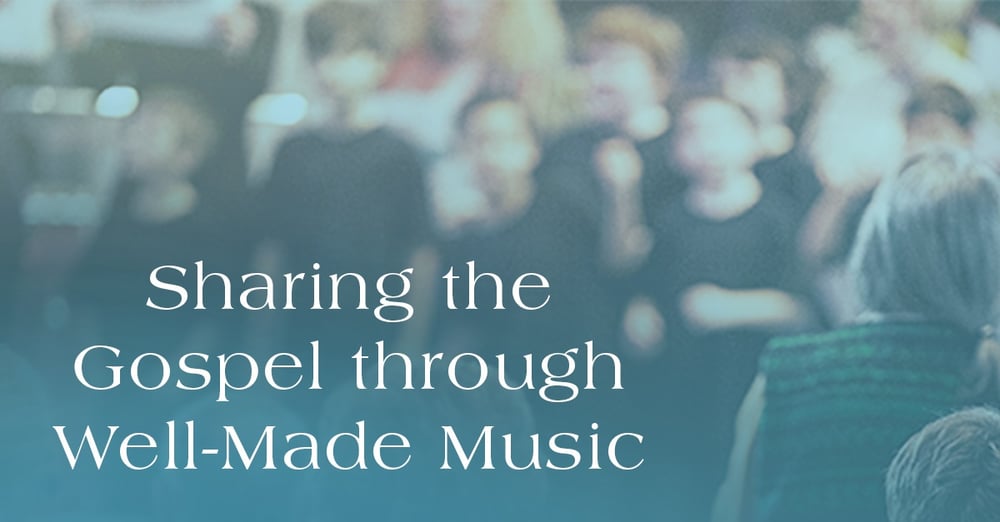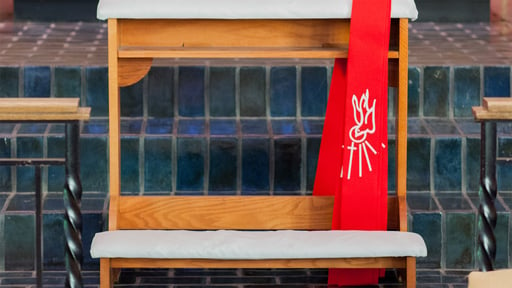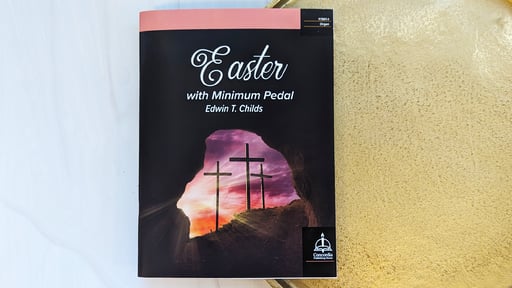This post comes from Luther on Music: Paradigms of Praise.
Understanding the function of music in the church is essential for a church musician. Luther understood music’s primary role as proclaiming the Gospel, not teaching or entertaining—a view that has important implications in our selection and performance of music in the church.
The Dual Purpose of Music in the Church
In Luther’s view, music in the church functions as viva vox evangelii, as “living voice of the Gospel,” praising God and proclaiming His Word to the world. It does this, in part, as music is associated with texts that speak clearly and directly of Law and Gospel, of sin and salvation. From such a perspective, music in the church can never be simply teacher, pedagogue, entertainer, or another way of filling the Christian community with useful information. It is the living Gospel itself, laying bare a person’s utter alienation from God, always accusing yet always bringing the final word of reconciliation, hope, and promise. Texts, therefore, are of crucial importance. But so is the music itself with which those texts are associated.
Music as Proclamation of the Gospel
If music in some way participates in the proclamation of the Word, how does this occur? It does this as it faithfully reflects in its own terms the honesty, integrity, truthfulness, and winsomeness of the Gospel message. Perhaps it is time to set aside terminology describing music as “the perfect setting for the perfect jewel of the Gospel,” the concept of music as “beautifying” the service, or the idea of music as the wrapping enclosing the gift of the Gospel, a wrapping that can be cast aside once the gift has been revealed. All such ideas are beside the mark. Music in the church can never be seen simply as part of the wrapping. It is a part of the unwrapping, an unwrapping that either contributes to or detracts from a faithful proclamation and witness.
Music in the church is both proclamation and ministry. And whether one speaks from the pulpit, choir loft, or organ bench, whether the Gospel is being proclaimed in word or tone, it must be the same Word that is spoken with faithfulness and heard with trusting and contrite hearts.
Music as Craft
To view music as gift and creation of God also has implications for the craft of music and the integrity of musical composition. To speak about music as craft means to be concerned with its fitness as music for the purpose for which it was intended, its suitability as music for its function, its “well-madeness” as music. For the church to be concerned about the craftsmanship of the music it uses in its praise and prayer is a direct reflection of its care in the use of this great and good gift of God. Luther’s care in his work as biblical translator to find just the right word to express the particular scriptural content needs to find a counterpart in greater attention by the church and its musicians to the craftsmanship in the music intended to convey that Word.
Music as craft has been having a bad time of it lately, having given way to several views that have gotten us off the track. Among these is the still popular view of music as essentially the result of “artistic inspiration” . . . and the notion that the goal of music in worship is beauty. As Erik Routley and others have reminded us, to “worship the Lord in the beauty of holiness” means no more than to “worship the Lord with decent ornaments.” And aside from the fact that two people can seldom agree on what actually constitutes beauty, that there is no “mawkish anthem or organ voluntary but [that] somebody has thought it beautiful,” the root of the problem is that such a view stresses the effect rather than the rightness of the thing made. If music is indeed God’s good creation and gift to people, then to proclaim the Gospel in music that reflects cheapness, superficiality, banality, shoddiness, and—perhaps worst of all—pretentiousness is to contradict in our art the truth, honesty, and integrity of the Gospel itself.
Text is from Luther on Music: Paradigms of Praise by Carl F. Schalk, pages 51–52. Copyright © 1988 Concordia Publishing House. All rights reserved.
Learn more about Luther and his understanding of music in Luther on Music: Paradigms of Praise.






.jpg?width=50&height=50&name=IMG_20220621_160541_456%20(1).jpg)








